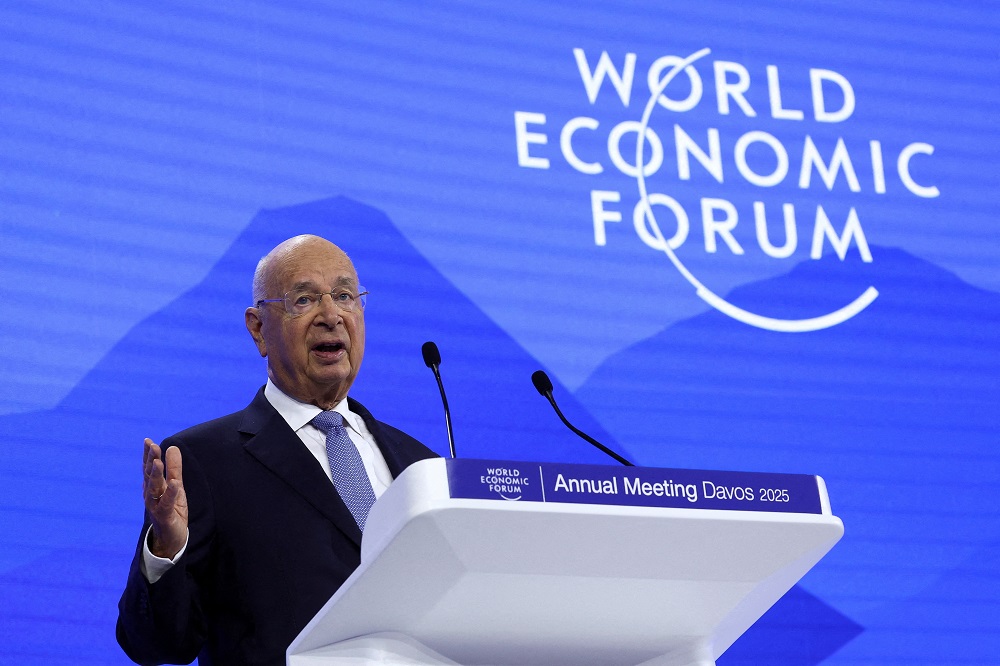By Dave Graham
Zurich (Reuters) – Klaus Schwab, founder of the World Economic Forum, whose annual meeting with business and political leaders at Davos Swiss Mountain Resort became a symbol of globalization, resigned as chairman of the board.
The World Economic Forum (WEF), headquartered in Geneva, made the announcement on Monday, after revealing at the beginning of the month that 87-year-old Schwab, who for decades is the face of the Davos meeting, left their office without giving a definitive schedule.
“After my last announcement, and when I entered the year of the 88th life, I decided to leave the position as president and board member, with immediate effect,” Schwab said in a statement issued by WEF.
The forum did not say why he left his office.
In the statement, the WEF Council said that it accepted Schwab’s departure at an extraordinary meeting on April 20, with Deputy President Peter Brabeck-Elmathe and acted as an interim president while the search for a new president began.
Continues after advertising
Schwab, born in Germany, founded WEF 1971 to create a forum for policy formulators and major business leaders to address major global issues.
The village Davos gradually became a fixed point in the international calendar in January, when political leaders, CEOs and celebrities gather in the discreet and neutral Switzerland to discuss the following year’s agenda.
CRITICISM
Continues after advertising
In recent years, the WEF meeting in Davos has attracted criticism of left and right opponents, is considered a globalization leader.
With headquarters above Lake Geneva, at the other end of Switzerland compared to Davos, WEF also had to handle negative reports on its internal culture.
Last year, the Wall Street Journal said that the WEF Board was working with a law firm to investigate its culture in the workplace, after the newspaper reported harassment and discrimination accusations in the forum. WEF denied the charges.
Continues after advertising
Shaken by the global financial crisis 2007-2009, WEF has also been affected by geopolitical tensions since the Russian invasion of Ukraine 2022 and the US’s more protectionist business policy. Some analysts see him as a declining institution.
Schwab predicted that globalization would be criticized long before Donald Trump received the US Presidency and the United Kingdom votes for the European Union’s departure in 2016, events that analysts attribute dissatisfaction with the current economic order.
“An increasing reaction to the effects (globalization), especially on industrial democracies, threatens a very disturbing impact on economic activity and social stability in many countries,” Schwab and his colleague Claude Smadja have written in an article in 1996.
Continues after advertising
“The climate in these democracies is of impotence and anxiety, which helps explain the emergence of a new type of populist politicians.”
(Report from Dave Graham; Edition of Kirsten Donovan, Rachna Uppal and Andrew Cawthorne)












Leave a Reply